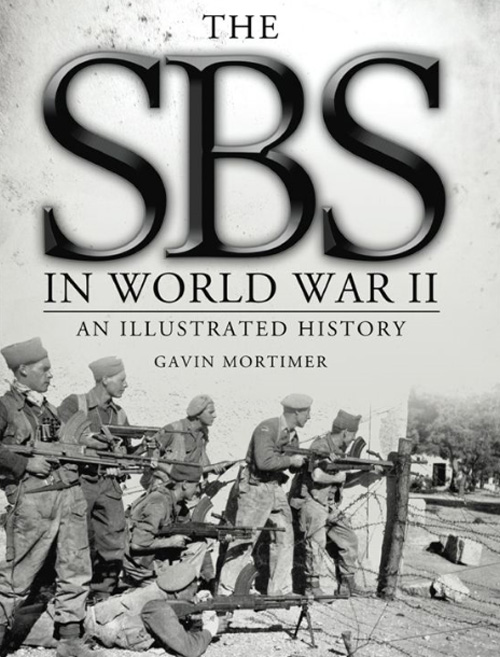The SBS in World War II
Review

The SBS in World War II - An Illustrated History, Gavin Mortimer, Osprey Publishing, 2013, 256 p, ISBN 978-1-78200-189-8, £20.
Gavin Mortimer has established a firm place as a historian of Special Forces in World War Two. His outstanding books on the SAS (2004 and 2011) and this one on the SBS clearly demonstrate the trust that he has established with the veterans of the conflict and their families, as well as his mastery of the official archive. For those not familiar with the terminology, SB has always stood for Special Boat but the second S has variously been Section, Squadron and Service, as it is today.
SBS in the Mediterranean was taken over by David Stirling's SAS in 1942 but soon became an operational unit in its own right again, commanded by Earl Jellicoe and later David Sutherland. Both men had distinguished government careers after the war, respectively in politics and intelligence, although Jellicoe's indifference to society's norms nearly led to his downfall in the 1970s. They, and their men, were described in the highest terms by F. M. Alexander, Supreme Commander in the Mediterranean, but others called them "renegades" and "legitimised pirates".
Using many previously unpublished photographs Mortimer charts the various raids in which 250 men tied down large numbers of German forces. Included is the Alimnia Raid, which resulted in the torture and death of four SBS soldiers, which was used as part of the evidence of Nazi atrocities against former UN Secretary General Kurt Waldheim. The book also tells of the raid at Lake Comacchio in April 1945, after which Major Anders Lassen was posthumously awarded the only Victoria Cross ever given to a member of the Special Forces.
This excellent book is important in understanding the history of the war in the Mediterranean and Aegean but it can also be enjoyed by the general reader, with its story flowing from soldier to soldier and raid to raid through personnel reminiscences, post-war accounts and war diary entries.

